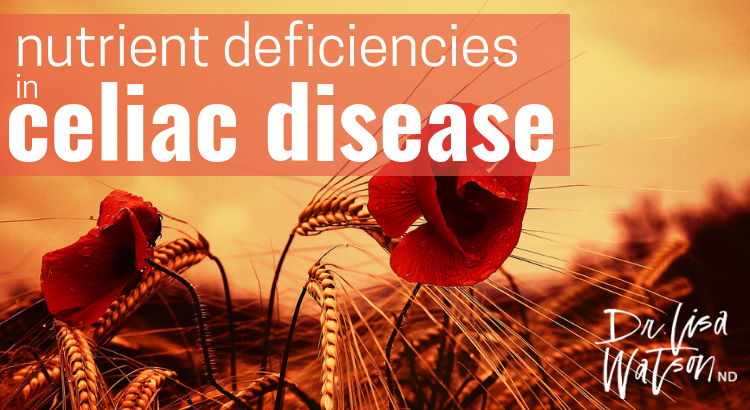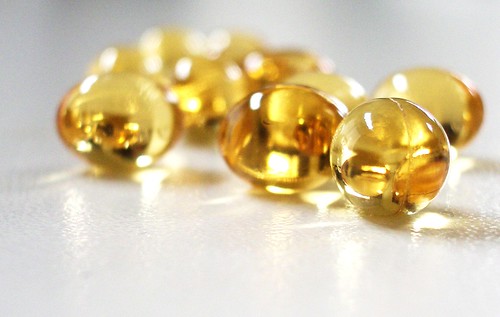
Celiac disease is more than an intolerance to gluten. It is an immune-mediated condition where the immune system attacks and damages the microvilli in the small intestine after dietary exposure to gluten.
The damage done by the immune system results in many of the symptoms of celiac disease – abdominal pain, gas, bloating, diarrhea and/ or constipation. The damage to the intestinal cells also prevents the body from absorbing nutrients from food, resulting in malnourishment and symptoms of anemia, weight loss, and fatigue.
Foods that contain gluten

The main treatment for celiac disease is complete avoidance of gluten. Even a small amount of gluten can prevent the body from healing the damage done to the microvilli of the small intestines. Celiac disease is a chronic condition – gluten must be avoided for a lifetime.
Gluten is a protein found in specific grains – wheat (including semolina, couscous, bulgur, durum, farina, spelt, graham flour), barley, triticale, and rye.
Gluten is also found in any foods that use wheat flour as a thickening agent. Luncheon meats, gravy, soy sauce, mustards, baked beans, pates, salad dressings, malt balls and more can contain gluten. If you have been diagnosed with celiac disease, be sure to read all labels to check for hidden gluten.
Nutrient Deficiencies in Celiac Disease
Nutrient deficiencies in celiac disease occur as a result of the damage done to the cells of the small intestines. In many cases nutrient deficiences are what lead to a diagnosis of celiac disease! In up to half of celiac patients nutrient deficiencies persist despite being on a gluten-free diet. Many of these nutrient deficiencies can have significant long-term impacts such as accelerated bone loss and cardiovascular disease. This has led many experts in celiac disease to recommend both monitoring and supplementation to improve nutrient status. The specific nutrient deficiencies that are a concern in celiac disease are listed below.
Vitamin D
Vitamin D deficiency is thought to be responsible for the high incidence of bone disorders in celiac disease. With studies suggesting up to 70% of celiac patients have reduced bone mineral density this is a major concern for the life long health of people with celiac disease.
Vitamin D deficiency is common in celiac disease because it requires not only the proper function of pancreatic enzymes but is also absorbed in the region most damaged by celiac disease.
When vitamin D levels are deficient not only is new bone material not being created but calcium is also being removed from the bone, resulting in decreased density, increased fragility and a higher incidence of osteoporosis.
Low vitamin D levels also decrease the amount of calcium absorbed – in cases of low vitamin D only 10-15% of dietary calcium is absorbed (compared to 30-40% in healthy individuals).
In people with celiac disease on a gluten free diet taking a vitamin D supplement and calcium can improve bone mineral density. One study found that those not taking supplements did not have an improved bone mineral density after one year of being gluten free. Your Naturopathic Doctor can provide you with guidelines for appropriate vitamin D dosage, high doses may require laboratory monitoring to ensure liver health.
Calcium
Calcium deficiencies in celiac disease arise as a result of vitamin D deficiencies. Vitamin D is required by the body for appropriate calcium absorption. Taking a calcium supplement with a vitamin D supplement is recommended for most people with celiac disease.
Vitamins A, E and K

These fat soluble vitamins may also be deficient in celiac disease due to inadequate pancreatic enzyme secretion. Vitamins A and E function as antioxidants in the body and can help decrease inflammation and prevent damage to cells from free radicals. Supplementation with vitamins A, E and K may be warranted, particularly during the first 12-24 months on a gluten free diet while the body repairs the damage done to the intestinal lining.
Vitamin B12
Vitamin B12 deficiency is relatively common in adults with and without celiac disease and incidence increases with age. B12 is absorbed at a lower level of the small intestine than other nutrients but is still deficient in up to 40% of celiac patients, likely due to pancreatic enzyme insufficiencies or suboptimal gastric acid secretion.
People with celiac disease taking antacids, PPIs (proton pump inhibitors) or with low levels of B12 may benefit from B12 supplements. B12 is available as an intramuscular injection or oral supplement. Discuss with your Naturopathic Doctor which option is better for you.
Folic acid
Folic acid is a B vitamin and, like vitamin B12, the absorption of folic acid is diminished in celiac disease. When folic acid and vitamin B12 are decreased levels of homocysteine increase – and elevated homocysteine is associated with an increased incidence of heart disease.
Food fortified with folic acid tend to be those that must be avoided in celiac disease, namely breads and cereal products. Few gluten-free products are adequately fortified with folic acid. The methylated form of folic acid, 5-MTHF is the best absorbed form of folic acid and may be an appropriate supplement for individuals with celiac disease.
Iron
 Iron deficiency is the most common non-digestive symptom of celiac disease. Iron deficiency is one of the symptoms that is most likely to lead to a diagnosis of celiac disease.
Iron deficiency is the most common non-digestive symptom of celiac disease. Iron deficiency is one of the symptoms that is most likely to lead to a diagnosis of celiac disease.
Iron absorption may normalize after one year or more on a gluten free diet. However, up to 50% of celiac patients will still have low serum ferritin (iron storage) levels after one year and up to 45% will have persistent low ferritin after two years. Iron levels should be tested whenever using iron as a supplement and dosage should be tailored to your individual needs.
Deficiencies in pancreatic enzymes
While not a nutrient deficiency, deficiencies in pancreatic enzymes can contribute to sub-optimal nutrient absorption and are an important aspect of managing celiac disease. These enzymes are normally secreted in response to fats and proteins in the diet. Pancreatic enzyme secretion is decreased in people with celiac disease due to the mucosal damage to the intestines.
Supplementing with digestive enzymes can be useful during the first year on the gluten-free diet while the body is repairing the damage to the cells of the intestinal lining. Additionally, people who are still experiencing symptoms of diarrhea while on the gluten free diet may benefit from supplementation of digestive enzymes.
Other Concerns in Celiac Disease
In addition to the various nutrient deficiencies seen in celiac disease there are two other areas of concern that may be contributing to symptoms or suboptimal health in individuals with celiac. They are dairy intolerance and dysbiosis.
Dairy Intolerance
People who have celiac disease have an increased chance of being lactose intolerant due to decreased pancreatic enzymes and damage to the cells in the upper intestinal tract where lactase (the enzyme that breaks down lactose in milk) is secreted.
Not only is lactose intolerance an issue in celiac disease, but there may also be reactivity to the proteins in milk, most notably casein. In one study they found that half of the celiac patients exposed to milk had an inflammatory response when given cows milk.
Dysbiosis
We all carry around several pounds of bacteria in our digestive tract. Some of it is bad, but most of it is good. When we carry more bad than good bacteria we are in a state of “dysbiosis”.
In people with celiac disease studies have suggested that there is a tendency to carry higher levels of Bacteroides and Clostridium leptum (two ‘bad’ bacteria strains), regardless of whether they were consuming gluten or not.
In untreated celiac disease higher levels of E. coli and Staphylococci have also been found. Luckily these levels normalized with a gluten-free diet.
Since the gluten-free diet alone does not completely normalize the bacteria balance in the digestive tract supplementing with probiotics and prebiotics can be used to successfully modify the bacteria population and reduce inflammation and decrease symptoms.
Celiac disease is a condition that is best managed using an integrative approach. An experienced Naturopathic Doctor can work with your Medical Doctor, nutritionist and other health care providers to ensure you are getting everything you need to live a long, healthy and full life, even without gluten.
Disclaimer
The advice provided in this article is for informational purposes only. It is meant to augment and not replace consultation with a licensed health care provider. Consultation with a Naturopathic Doctor or other primary care provider is recommended for anyone suffering from a health problem.
Select References:
Malterre T. Digestive and Nutritional Considerations in Celiac Disease: Could Supplementation Help? Altern Med Rev 2009;14(3):247-257
Annibale B, Severi C, Chistolini A, et al. Efficacy of gluten-free diet alone on recovery from iron deficiency anemia in adult celiac patients. Am J Gastroenterol 2001;96:132-137
Green PH, Cellier C. Celiac disease. N Engl J Med 2007;357:1731-1743
Leeds JS, Hopper AD, Hurlstone DP, et al. Is exocrine pancreatic insufficiency in adult coeliac disease a cause of persisting symptoms? Aliment Pharmacol Ther 2007;25:265-271
Sanz Y, Sánchez E, Marzotto M, et al. Differences in faecal bacterial communities in coeliac and healthy children as detected by PCR and denaturing gradient gel electrophoresis. FEMS Immunol Med Microbiol 2007;51:562-568
Corazza GR, Di Sario A, Sacco G, et al. Subclinical coeliac disease: an anthropometric assessment. J Intern Med 1994;236:183-187
Annibale B, Severi C, Chistolini A, et al. Efficacy of gluten-free diet alone on recovery from iron deficiency anemia in adult celiac patients. Am J Gastroenterol 2001;96:132-137
Meyer D, Stavropolous S, Diamond B, et al. Osteoporosis in a North American adult population with celiac disease. Am J Gastroenterol 2001;96:112-119
Photo Credits:


[…] (1) http://scdlifestyle.com/2012/07/why-everyone-with-celiac-disease-needs-vitamin-d/ (2) http://www.celiac.com/articles/23617/1/Role-of-Probiotics-in-Improving-Gut-Health-in-Celiac-Disease/Page1.html (3) https://drlisawatson.com/nutrient-deficiencies-celiac […]
[…] The poor absorption of folic acid in celiac disease may be the primary cause of the majority of these outcomes. Folic acid is necessary for DNA replication and the production of new cells – two very important functions in early embryo development. We know that folic acid deficiency can lead to an increased risk of neural tube defects and has been linked with an increased risk of miscarriage. Additionally, deficiencies in zinc and selenium are common in untreated celiac disease. These nutrients are also necessary to ensure healthy pregnancy. You can read more about the nutrient deficiencies in celiac disease in my article Nutrient Deficiencies in Celiac Disease. […]
[…] Watson, Lisa. Nutrient Deficiencies in Celiac Disease. https://drlisawatson.com/nutrient-deficiencies-celiac […]
Great article, thx so much great information I am a celiac disease,gluten free and soy free I have many foods allergies, I’ve main tanning it well but still have to read labels after being on this diet for 10 plus years. Thx again. Cindy from Colorado
My husband was diagnosed with celiac disease about seven years ago. Lately he has been getting itchy blotches on his back and hands. Is this a deficiency of some kind??
There is the potential that it is dermatitis herpetiformis – a type of rash associated with celiac disease. I’d look that up and see if it matches his symptoms.
Best, Dr. Lisa